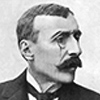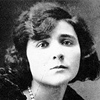reddit criminology essay writing service Essay Writing Service Reddit 2022-2023 reddit.com writing research paper service
how to write an article for fce exam freeessaywriter.org how to write a cover letter no experience
how to write an essay grammarly https://freeessaywriter.org/ how to write a letter birthday to a friend
how to write an essay in english ppt www.paperhelp.nyc how to write a summary of a job description
how to write an essay for college examples paper help how to write a letter video
One-Bedroom Apartment
4 apartments with between 35 and 50 sqm, located on the 1st, 2nd and 4th floor, for two people, with living room, dining area and a fully equipped kitchenette.
Apartment Fernando Pessoa (201)
| Size: | 42 sqm |
| Capacity: | 2 adults (2 large single beds) 1 free baby crib for children up to 3 years old |
| Location: | 1st floor front |
A fully equipped apartment, with a 2 day towel exchange free service, trash taken out and general cleaning.
Apartment
Free wireless internet! Share the experience with friends or family through Facebook or WhatsApp!
Wi-Fi
By yourself, with friends or family. Contact us for specific needs.
Guests:
2 adults
Cable TV up to 40 channels.
TV
Apartment Sophia Mello Breyner (301)
| Size: | 47 sqm |
| Capacity: | 2 adults (2 large single beds) 1 free baby crib for children up to 3 years old |
| Location: | 2nd floor front |
A fully equipped apartment, with a 2 day towel exchange free service, trash taken out and general cleaning.
Apartment
Free wireless internet! Share the experience with friends or family through Facebook or WhatsApp!
Wi-Fi
By yourself, with friends or family. Contact us for specific needs.
Guests:
2 adults
Cable TV up to 40 channels.
TV
Apartment Eça de Queiroz (403)
| Size: | 45 sqm |
| Capacity: | 2 adults (1 queen size bed) 1 free baby crib for children up to 3 years old |
| Location: | 3rd floor front |
A fully equipped apartment, with a 2 day towel exchange free service, trash taken out and general cleaning.
Apartment
Free wireless internet! Share the experience with friends or family through Facebook or WhatsApp!
Wi-Fi
By yourself, with friends or family. Contact us for specific needs.
Guests:
2 adults
Cable TV up to 40 channels.
TV
Apartment Florbela Espanca (404)
| Size: | 30 sqm |
| Capacity: | 2 adults (1 queen size bed) 1 free baby crib for children up to 3 years old |
| Location: | 3rd floor back |
A fully equipped apartment, with a 2 day towel exchange free service, trash taken out and general cleaning.
Apartment
Free wireless internet! Share the experience with friends or family through Facebook or WhatsApp!
Wi-Fi
By yourself, with friends or family. Contact us for specific needs.
Guests:
2 adults
Cable TV up to 40 channels.





















